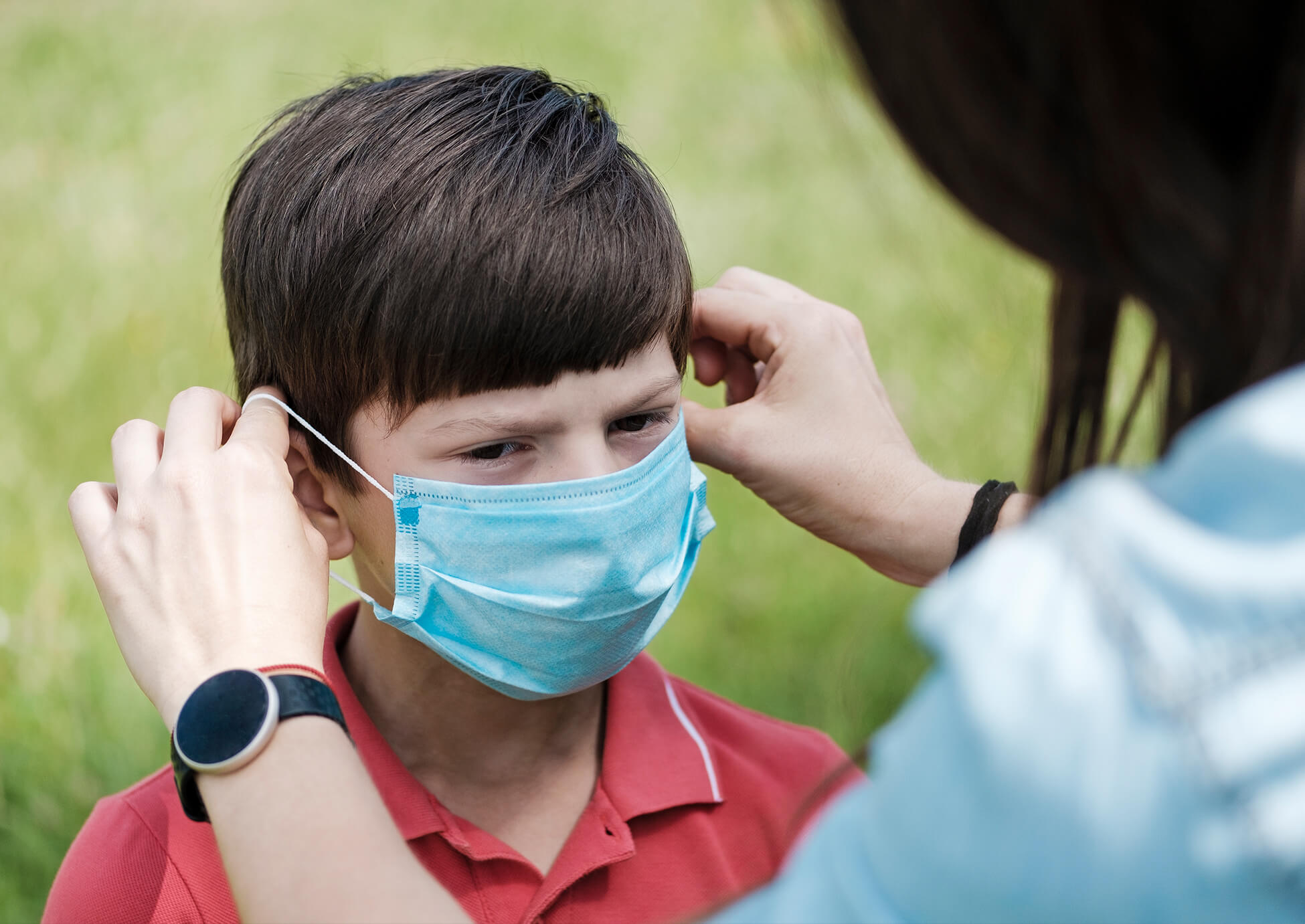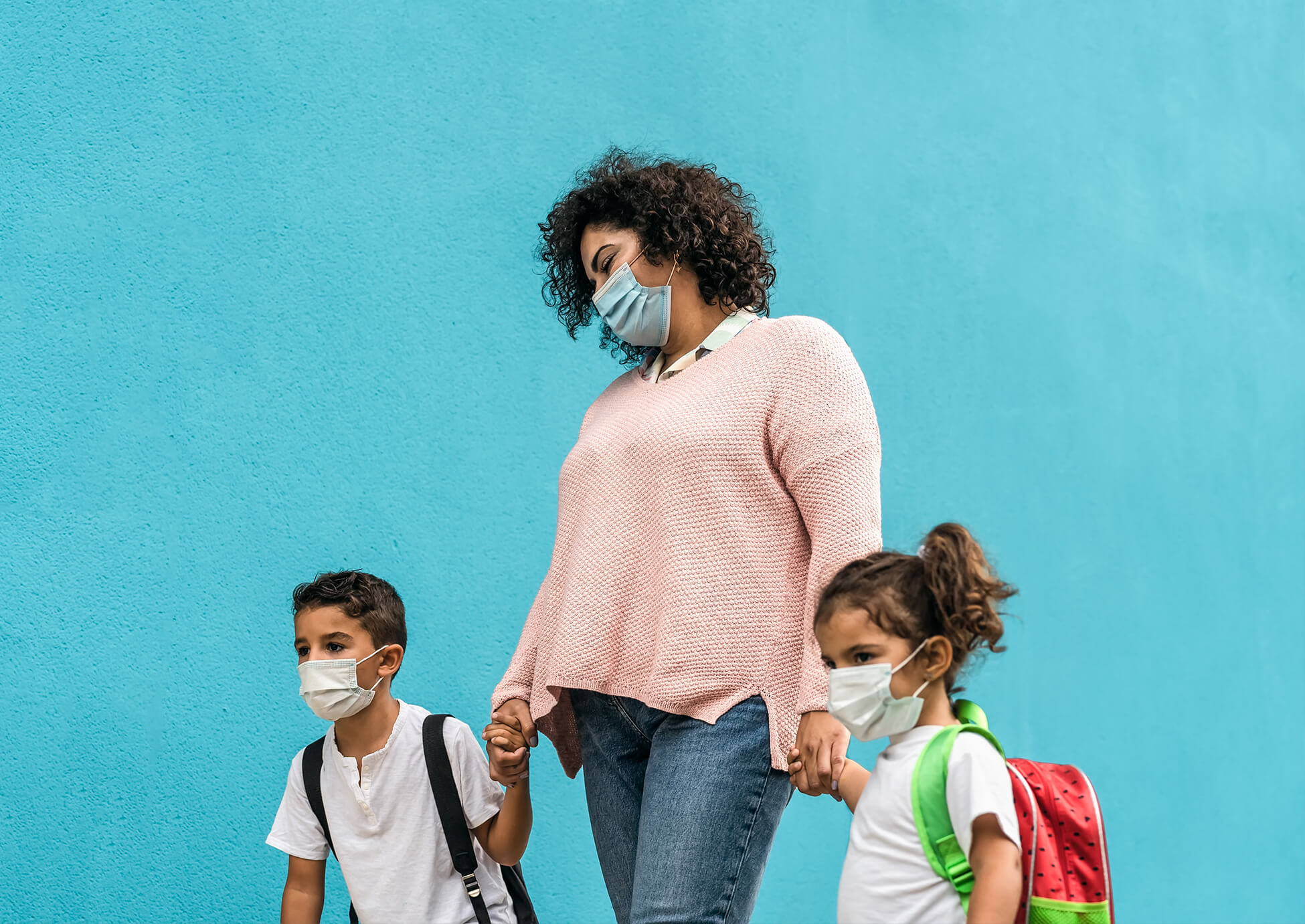Energy Out: Daily Physical Activity Recommendations
Child abuse needs to stop and education is the key.
The following free resources are essential to driving change and
are made possible through your contributions. Thank you.


Family Activities and COVID-19
As more people are getting vaccinated and resuming activities they did before the pandemic, parents and caregivers are making hard decisions on how to protect their families. Not everyone is able to get vaccinated, so you may be confused about how to keep your family safe, especially if your family has vaccinated and unvaccinated members.
Things to Think About
What is your family’s vaccination status?
- Everyone 12 years and older should get a COVID-19 vaccination to help protect against COVID-19.
- Help protect your whole family by getting yourself and your children who are 12 years and older vaccinated against COVID-19.
- People who are not fully vaccinated and children under 12 years who are not able to get a COVID-19 vaccine should continue taking steps to prevent getting sick.
- To maximize protection from COVID-19, and in particular, the Delta variant, and prevent possibly spreading it to others, everyone, regardless of vaccination status, should wear a mask indoors in public if you are in an area of substantial or high transmission.
Do you have family members with medical conditions or a weakened immune system?
- People with certain underlying medical conditions are at increased risk for severe illness from COVID-19.
- If you or a family member have a condition or are taking medications that weaken your immune system, you may not be fully protected even if you are fully vaccinated. You should continue to take all precautions recommended for unvaccinated people until advised otherwise by your healthcare provider.
- Wearing a mask is most important if you have a weakened immune system or if, because of your age or an underlying medical condition, you are at increased risk for severe disease, or if someone in your household has a weakened immune system, is at increased risk for severe disease, or is unvaccinated. If this applies to you or your household, you might choose to wear a mask regardless of the level of transmission in your area.

Where is your family going?
- Outdoor activities and settings are safer than indoor ones.
- Avoid places that are poorly ventilated.
- Avoid crowded places and gatherings where it may be hard to stay at least 6 feet away from others who don’t live with you.
What are the number of COVID-19 cases and fully vaccinated people in your community or the community you are visiting?
Use CDC Data Tracker to learn about the situation in your community.
If your community has a high number of COVID-19 cases or a low number of fully vaccinated people, consider choosing safer activities.
How to Talk to People Who Care for or Spend Time with Your Family Member
Learn how to talk to professional caregivers, extended family members, family friends, teachers, or other people your loved one spends time with about how to keep your loved one safe from COVID-19.
- Check that your child’s school, childcare program, your family member’s adult care program, or other caregivers are taking the necessary steps to protect your loved ones in their care.
- Tell them to encourage your family member to wear a mask indoors or in spaces where it is hard to stay 6 feet away from others.
- Caregivers can help model mask-wearing for children who are too young to get vaccinated.
- Let caregivers know, as appropriate, if your loved one or someone they live with has an underlying medical condition or a weakened immune system.
- Pack an extra mask in your child’s backpack. If your child is old enough, ask if your child can bring hand sanitizer from home to use when they cannot wash their hands with soap and water.
Helping Your Family Member Cope
As families begin participating in more of the activities they did before the pandemic, children or other family members may worry about themselves, their family, and friends getting sick with COVID-19. They may feel anxious about returning to school, childcare, or normal activities like grocery shopping or gatherings. Parents, family members, and other trusted adults can help your loved one make sense of what they hear.
- Make yourself available to listen and to talk. Let your family member know they can come to you when they have questions.
- Reassure your child or family member that they are safe.
- Let them know it is okay if they feel upset. Share with them how you deal with your own stress so that they can learn how to cope from you.
- Answer questions honestly and share facts about COVID-19 in a way that your family member can understand.
- Teach children and other family members everyday actions to reduce the spread of germs.
- Parents and caregivers can help by modeling these behaviors themselves.
- Discuss with your family member any new actions or routines that may be taken at school, childcare, adult care, or other activities to help protect them and others.
- Take steps to protect you and your family’s mental health.
- Try to keep up with regular routines.
- Find safe ways to keep your family connected with friends and other family members.
- Teach your family healthy coping skills by modeling them yourself. Take breaks, get plenty of sleep, exercise, and eat well.
Get immediate help in a crisis – CALL 911
Find a health care provider or treatment for substance use disorder and mental health:
- SAMHSA’s National Helpline
: 1-800-662-HELP (4357) and TTY 1-800-487-4889 - Treatment Services Locator Website
- Interactive Map of Selected Federally Qualified Health Centers
Take care of your mental health
You may experience increased stress during this pandemic. Fear and anxiety can be overwhelming and cause strong emotions.
Disaster Distress Helpline
call or text 1-800-985-5990 (press 2 for Spanish).
National Suicide Prevention Lifeline
1-800-273-TALK (8255) for English, 1-888-628-9454 for Spanish
National Domestic Violence Hotline
1-800-799-7233 or text LOVEIS to 22522
National Child Abuse Hotline
1-800-4AChild (1-800-422-4453) or text 1-800-422-4453
National Sexual Assault Hotline
1-800-656-HOPE (4673) or
The Eldercare Locator
1-800-677-1116
Veteran’s Crisis Line
1-800-273-TALK (8255)
Crisis Chat or text: 8388255
References & Sources
The abuse may be brief, but the trauma lasts a lifetime.
Kids’ lives and futures are on the line!
Be the voice against neglect and contribute to end child maltreatment today.
Our Lessons are available for Offline learning!
Previous Section
